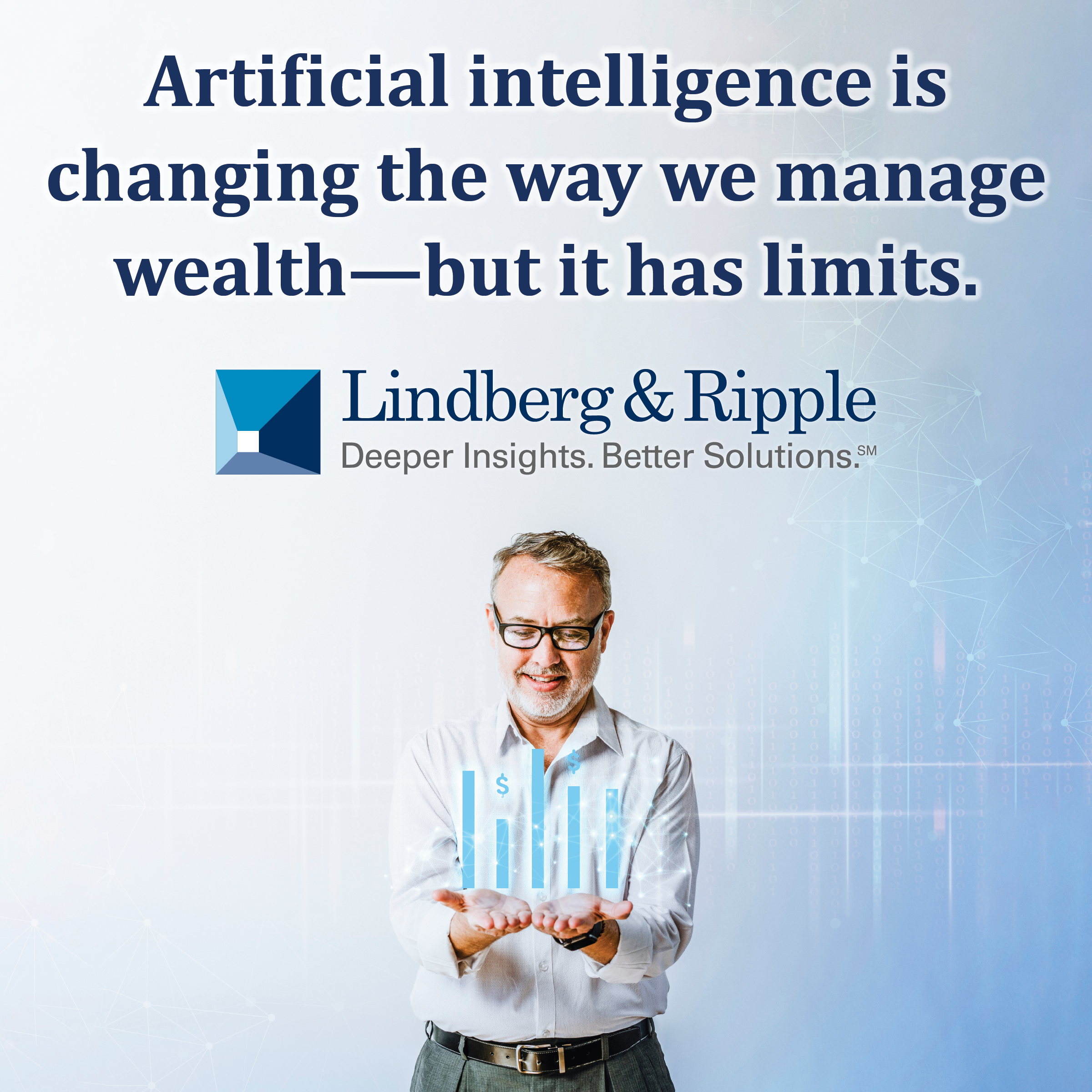The rise of artificial intelligence (AI) has transformed nearly every sector of the global economy, and wealth management is no exception. From robo-advisors to AI-driven portfolio optimizers and tax-loss harvesting tools, technology has become a powerful force in financial planning and investing. These tools offer speed, efficiency, and the ability to analyze vast amounts of data in real time. Yet, as impressive as these capabilities are, they do not replace the experience, context, and strategic thinking that a seasoned advisor brings to the table.
The Promise of AI in Financial Services
AI has enabled platforms to automate many aspects of investment management. Retail investors can now access low-cost digital advisors that build and rebalance portfolios with little human intervention. Sophisticated algorithms analyze risk tolerance, income levels, time horizons, and even behavioral tendencies to offer personalized asset allocations.
For more advanced investors, AI-driven platforms can identify tax-loss harvesting opportunities in real time, optimize the timing of trades, and detect market anomalies that may influence asset prices. These features bring notable advantages in scale, consistency, and cost-effectiveness.
How Advisors Are Engaging with AI—Cautiously and Strategically
Despite growing interest in AI, most experienced financial advisors are taking a measured approach to its integration. While some firms are experimenting with AI tools to streamline back-office functions—such as document processing, compliance review, and client onboarding—very few are placing client relationships or investment decision-making entirely in the hands of algorithms.
Advisors are beginning to use AI selectively to support financial planning. For example, scenario modeling tools are increasingly AI-enabled, allowing advisors to simulate multiple variables around retirement income, tax strategies, or charitable giving. In this context, AI enhances the planning process—but only as a starting point. Advisors still interpret the results, evaluate trade-offs, and incorporate the human factors that the software cannot see.
There is also growing awareness of AI’s limitations. Many advisors remain skeptical of relying on “black-box” models that produce recommendations without transparency. In a highly personalized business that relies on trust, clients expect clarity—something that machine-generated outputs do not always provide.
Where Algorithms Fall Short
Despite these innovations, algorithms operate within the boundaries of their programming. They lack the ability to fully understand complex personal and emotional dynamics that often influence financial decisions. A well-designed algorithm can suggest rebalancing a portfolio, but it cannot evaluate whether a client is preparing to fund a child’s education, transition a business, or navigate a challenging family situation.
Moreover, AI tools are only as effective as the data and assumptions that underpin them. During periods of market disruption, human investors often act in unpredictable ways. Advisors with deep experience and perspective can guide clients through those moments—explaining the why behind volatility, identifying overlooked opportunities, and recommending course corrections when appropriate.
The Human Advantage: Judgment, Context, and Relationships
Human advisors offer a level of nuance that no algorithm can replicate. They understand the long-term goals and deeply personal motivations that drive financial decisions. They can ask questions a computer will not—questions about values, legacy, and priorities. These insights inform customized strategies that evolve as life circumstances change.
Additionally, advisors can offer emotional steadiness when markets are turbulent. During moments of uncertainty, clients often benefit most from reassurance, clarity, and a steady voice—qualities that build trust over time and cannot be coded into software.
The Ideal Future: Partnership Between Technology and Advisors
AI is not a replacement for human judgment—it is a complement. At its best, technology enhances an advisor’s ability to serve clients more effectively. It enables more robust modeling, faster scenario analysis, and streamlined administrative tasks. This allows advisors to spend more time on what matters most: understanding clients, crafting personalized strategies, and helping families stay the course toward their long-term goals.
Conclusion
AI will continue to reshape wealth management in powerful ways. However, financial success rarely depends on efficiency alone. It depends on making thoughtful, informed decisions over decades. That is where human insight—grounded in experience, empathy, and trust—continues to shine.
At Lindberg & Ripple, we embrace technology, but never at the expense of human connection. Our mission remains the same: to provide clarity, confidence, and personalized guidance through every phase of your financial journey.
File # 4610427
